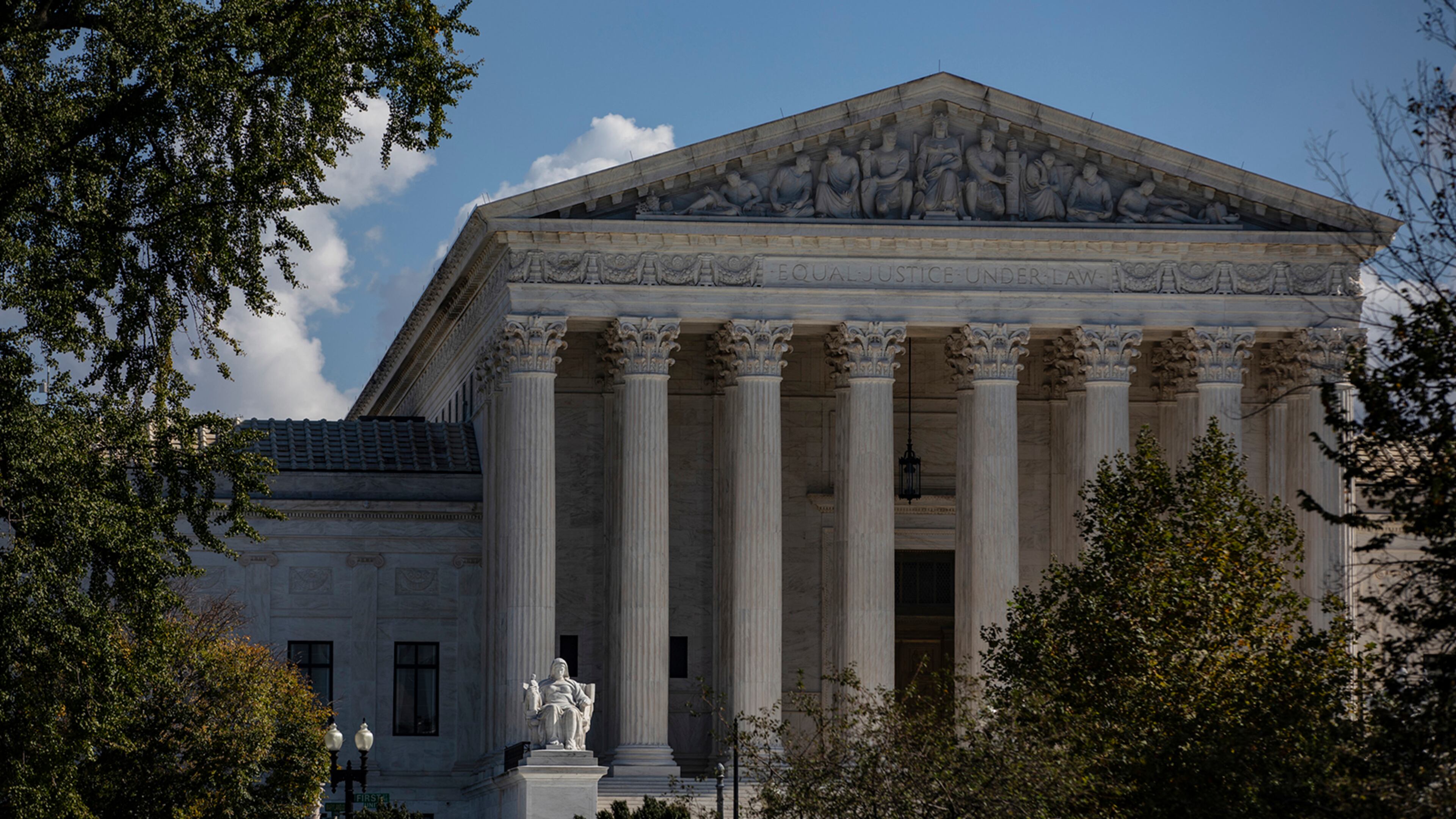Georgia secures major victory in Supreme Court water wars case

Georgia scored a major victory at the U.S. Supreme Court on Thursday, when justices unanimously opted to dismiss Florida’s eight-year-old water rights case against the state.
In a 9-0 decision authored by Justice Amy Coney Barrett, the court ruled that Florida did not demonstrate that the strict water consumption cap it wanted to place on Georgia farmers was warranted.
“Florida has not proved by clear and convincing evidence that the collapse of its oyster fisheries was caused by Georgia’s overconsumption,” the court stated in its 12-page decision.
State leaders touted the ruling, with Gov. Brian Kemp calling it “a vindication of years-long effort by multiple governors and attorneys general here in the Peach State to protect our citizens’ water rights.”
The suit involves river water from the Apalachicola-Chattahoochee-Flint basin, which originates northeast of metro Atlanta and flows into the Gulf of Mexico.
Justices heard the case less than six weeks ago — it was their second time reviewing it in less than four years.
During Feb. 22 oral arguments, Florida’s attorneys said that Georgia’s overuse of upstream water during a severe drought led to the collapse of Apalachicola Bay’s iconic oyster industry beginning in 2012. That’s because the mollusks rely on a delicate balance of freshwater and saltwater from the Gulf of Mexico to survive.
After initially targeting water usage in metro Atlanta, Florida zeroed in on farmers in southwest Georgia as the main culprit. It said farmers near the Flint River took out too much water for irrigation and that limiting agricultural water use, especially during droughts, would help safeguard the Bay and its unique ecology.
Georgia countered that its water use has been reasonable and that other factors, including climate changes and Florida’s overharvesting following the Deepwater Horizon oil spill, led to the oyster population’s decline. State lawyers argued that any cap on Georgia’s usage of water would be “draconian,” costing hundreds of millions of dollars to implement. They also said that such a measure would be of little benefit to Florida because of the complicated way the Army Corps of Engineers manages upstream dams.

The Supreme Court ultimately sided with Georgia and a court-appointed expert judge, who in December 2019 recommended that justices dismiss the case. Barrett wrote that Florida “allowed unprecedented levels of oyster harvesting” in the years leading up to 2012 while it “failed to adequately reshell its oyster bars.”
“Considering the record as a whole, Florida has not shown that it is ‘highly probable’ that Georgia’s alleged overconsumption played more than a trivial role in the collapse of Florida’s oyster fisheries,” the opinion stated.
Georgia spent nearly $50 million in taxpayer money defending itself. Florida spent even more for the suit, which was the subject of a five-week trial and heard before two expert judges in Maine and then New Mexico in 2016 and 2019.
Thursday’s decision brings to an end a taxing chapter in the tri-state water wars, in which Georgia, Florida and Alabama have battled over river water for three decades. But it’s unlikely to be the end of the saga, since there are several separate cases pending in lower courts. Alabama sat out the Supreme Court case but was backing Florida, since both sit downstream from Georgia.
The ruling could prompt Congress to wade back into the water fight. Lawmakers engaged in an unofficial ceasefire in recent years while the Supreme Court considered the case, but tussling over the issue nearly led to a government shutdown in late 2015, when Georgia lawmakers revolted after language was slipped into a must-pass spending bill by an Alabama senator.
A spokeswoman for the Florida Attorney General’s office said leaders are reviewing the court’s opinion and will consult with the state Department of Environmental Protection “to discuss if any further action is warranted.”
“It’s a disappointing result, but we remain committed to supporting DEP in protecting Apalachicola Bay and the jobs that this important resource supports,” the spokeswoman said.
Florida officials last summer banned oyster harvesting in the Apalachicola Bay for five years, part of a $20 million restoration plan that includes reshelling work.
Jeffrey Harvey, director of public policy for the Georgia Farm Bureau, called Thursday’s ruling “very positive” for farmers.
“We knew that we were in the crosshairs and we had a lot to lose in this thing,” Harvey said, adding that a pro-Florida decision would have been “devastating.” “We just appreciate the court examining the facts and understanding that we’ve been great stewards.”
Katherine Zitsch, managing director of natural resources for the Atlanta Regional Commission, also expressed relief but said that metro Atlanta “can’t take our eye off the ball.”
“We celebrate today’s decision, but we know that cycles of drought will persist. So we must continue our leading efforts in water conservation and stewardship, for metro Atlanta and our downstream neighbors,” she said.
In the final paragraph of their ruling, justices emphasized that “Georgia has an obligation to make reasonable use of Basin waters” to help conserve the increasingly scarce resource.




